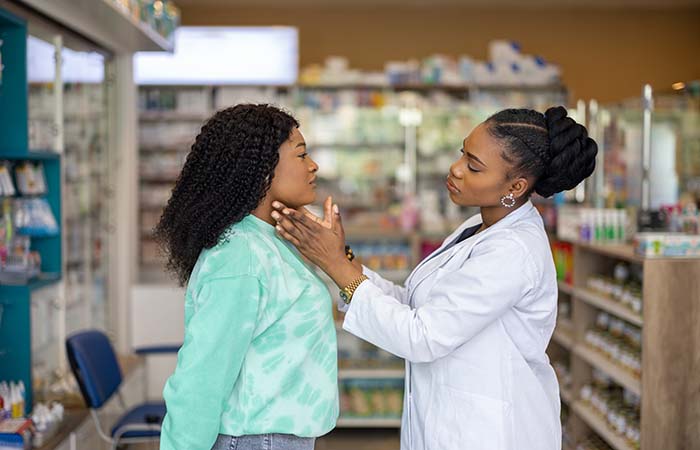Wales STTT pharmacies supply fewer antibiotics than GPs for sore throat
In Clinical news
Follow this topic
Bookmark
Record learning outcomes
Pharmacies in Wales providing the NHS-funded sore throat test and treat (STTT) service supplied fewer antibiotics to patients than GPs. STTT was also found to be less costly than GP consultations, according to research published in the Journal of Antimicrobial Chemotherapy.
The retrospective, longitudinal cohort study looked at sore throat consultations with patients aged 6 years or older between 1 November 2018 and 28 February 2020 either with STTT service or with a healthcare professional at a general practice.
The study sought to address anecdotal concerns that allowing antibiotic supply from pharmacies could lead to increased inappropriate use and antimicrobial resistance.
STTT began in 2018 and enables pharmacists to identify the likelihood of group A Streptococcus pharyngitis using FeverPAIN/Centor scores, verified by rapid antigen detection test (RADT). If indicated, antibiotics are supplied via a patient group direction.
Using computer records, the researchers identified 72, 736 consultations for acute sore throat, with 6,495 (8.9 per cent) in STTT (exposed group) and 66 ,241 (91.1 per cent) in GP (unexposed group).
A total of 1,382 (21 per cent) of the STTT consultations ended with antibiotic supply, compared with 25, 506 (39 per cent) in GP consultations.
Re-consultation with GP for sore throat–related reasons within 28 days of the initial consultation was observed for 926 (14 per cent) STTT consultations compared with 4,916 (7.4 per cent) of GP consultations.
For a hypothetical cohort of 1,000 children and adults, STTT was found to be less costly than GP consultation in both populations, say the researchers. In adults, STTT was also found to be marginally more effective than a GP consultation. In children, it was found to have marginally fewer QALYs than GP consultation, due to a higher estimated disease prevalence in children.
The researchers estimate that for every 100 patients presenting with sore throat at an STTT pharmacy, 15–18 antibiotic prescriptions were ‘saved’. Accounting for all possible re-consultations within 28 days, this reduced to 12 antibiotic prescriptions saved, although coding assumptions make this a likely underestimate.
“Our study provides further evidence that the pharmacy-led STTT service is safe and cost-effective, and provides a blueprint for data-enabled rapid evaluations of community pharmacy services, the researchers conclude.

